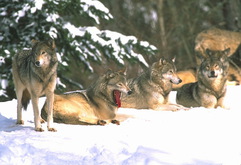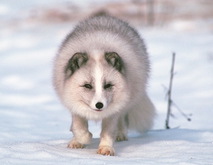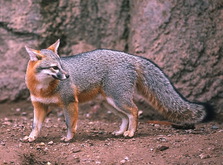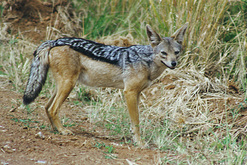wolves, foxes, and relatives
Canidae
Members of this group include wolves, foxes, African wild dogs, jackals, coyotes, and dogs. There are about 34 species worldwide, occurring on every continent except Antarctica. One species, the dingo, occurs on Australia, where they were probably introduced by humans during prehistoric times. Members of this group are mainly medium-sized, but range from 1 kg (small foxes) to 80 kg (gray wolves). They tend to have long faces with pointed ears, slender legs adapted for running, and long tails.
Members of this group are mainly meat-eaters but they include large amounts of insects, fruits, and carrion in their diet. They are capable of running for long periods of time and capture prey by chasing them until they tire. Prey is killed by being knocked to the ground. Wolves, foxes, and their relatives have exceptionally keen senses of smell and hearing, with vision being less well developed.
The smaller species live mainly on their own but the larger species, including African wild dogs, gray wolves, and coyotes, live in groups. These groups are marked by a strict social system where some members are dominant to others. Often only the dominant male and female of the group breed and other members help to raise their young. Hunting in packs makes it possible to capture much larger prey than solitary hunting.


Members of this group tend to be strongly territorial. Territories are marked and defended against other individuals and other species.
Members of this group are widely hunted, persecuted, and used by humans. Wolves, coyotes, and foxes have been actively persecuted by humans and have become threatened in many areas. Domestic dogs are descendants of gray wolf populations and are very important to humans as working animals, guardians, and companions.
Wolves, foxes, and their relatives are found in a wide variety of habitats, though they tend to be most abundant in open habitats, such as grasslands and savannahs.











